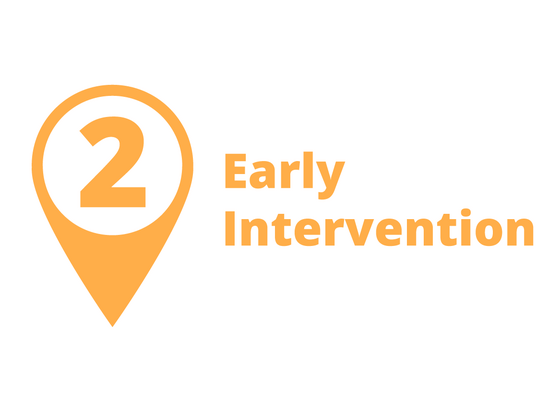About
This tier focuses on individuals identified at risk of or beginning to experience some behavioral health concerns to prevent worsening symptoms. This could be in reaction to common but significant life events such as change in family circumstances, divorce, death in the family, etc.

What are the signs?
Characteristics
- Increased emotional symptoms (worry, sadness, irritability, some distraction).
- Could be in reaction to common but significant life events such as death in the family, relocation, or change in family circumstances, among other things.
Identify Early Signs and Community Support
Individuals identified at risk of or beginning to experience some behavioral health concerns to prevent worsening symptoms.
Know the Signs and Reach Out
- Identify and understand the signs of mental distress.
- Some examples are intensive worry, changes in sleep and/or noticeable changes in mood.
- Contact your child’s doctor for guidance, resources and referrals.
- Contact your child’s school counselor to talk about school-based mental health resources.
- Seek support from family, friends, and community. Build a network of support for you, your child and family.

Use Your Local Resources
National Family Resiliency Center
NFRC offers support groups to help individuals aged 6 and above, including young adults and adult children of divorce, understand and express their emotions in a healthy manner, which is crucial for their healing.
The Howard County Autism Society
Has your child recently been diagnosed with Autism? Learn more about where to start and resource navigation, and peer groups available with the Howard County Autism Society.
The Howard County Family Institute
The Howard County Family Institute is an education, information and community outreach program of the Office of Children and Families. They offer classes, workshops, and informational sessions for parents on many topics, including child development, positive discipline, school readiness, and finding resources.
Maryland Coalition of Families
Contact Maryland Coalition of Families (MCF) to access peer support services that help parents and caregivers with emotional support and service navigation.
